The Importance of Changing Hukou Status for Better Spatial Equalities in China
From 2016 to 2020, China has been carrying a five-year project of hukou reform, granting urban hukous to rural-to-urban migrants. The hukou system was initiated in 1958 to control the movement of the Chinese population. Each Chinese citizen is assigned either a rural or urban hukou, depending on their residency. It is noteworthy that Chinese citizens cannot hold both a rural and urban hukou simultaneously. This has caused major problems for the estimated 262 million rural workers in urban areas nationwide. The five-year project has sought to convert rural hukous to urban ones to help rural Chinese to succeed in urban areas. As the project comes to an end, it is important to analyse whether hukou conversion – loosening the requirements to change a rural hukou to urban hukou – is conducive to rural Chinese citizens’ educational and social success, …

WILL HISTORY REPEAT ITSELF WITH PRESIDENT TRUMP’S TRADE WAR WITH CHINA?
The iconic statue of the first American postmaster general Benjamin Franklin greets visitors to the Old Post Office Pavilion in the heart of the US capital: Washington, DC. The edifice is now home to the luxurious and controversial Trump International Hotel on Pennsylvania Avenue at the mid-point between the US Capitol Building and the White House. The hotel webpage invites guests to “share tea” in the Benjamin Bar to discuss “social and economic affairs” as it was the “‘established custom’” in colonial America. It further states that “we agree with Franklin” and delight to “serve tea from China.” The page indicates that Franklin had stated “‘at least a million Americans drink tea twice a day,’” Yet, he was “unable to …
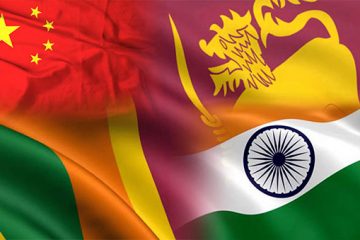
Caught in Indo-Chinese Crosswinds? Charting a Pragmatic Foreign Policy for Sri Lanka
Competition is a natural by-product of major powers navigating an anarchic world. Small states face a dilemma, when caught in the middle between two rivaling major powers. Sri Lanka in particular, has captured international attention as a key battleground between Beijing and New Delhi in their tussle for influence in South Asia. Whilst some scholars argue that the island is a personification of China’s ‘debt trap diplomacy,’ others contend that China’s influence should not be exaggerated, as Chinese lending amounts to less than 15% of Sri Lanka’s total external debt. Concerns over Sri Lanka’s sovereignty have been rife following the US $ 1.12 billion debt-to-equity swap of the Hambantota Port Agreement and the proposed lease of the Mattala International Airport …
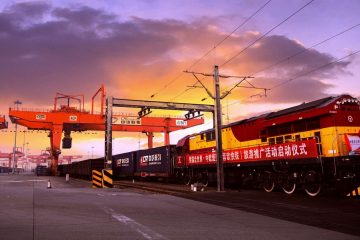
China’s Belt and Road – Threat to or Opportunity for the Liberal Order?
In 2013, Xi Jinping announced the idea of building a ‘Silk Road Economic Belt’ across Eurasia. A few months later, he proposed a ‘21st Century Maritime Silk Road.’ Five years on, these two projects have been merged in what is arguably the most ambitious economic and diplomatic enterprise of the 21st century: the Belt and Road Initiative (BRI), or One Belt One Road (OBOR). BRI involves over 80 countries across three continents and along six economic “corridors”, plus an additional route to the Arctic. It encompasses 900 infrastructure and development projects with a combined cost of US$900 billion. The Belt and Road Initiative includes projects such as the China-Pakistan Economic Corridor (CPEC), the trans-Eurasian railways network, Ethiopia’s Eastern Industrial Zone …
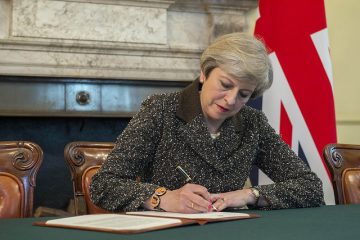
Why a larger Conservative majority in Westminster may lead to a weaker bargaining position in Brussels
It is predicted that Prime Minister Theresa May’s Conservative Party will achieve a significant victory in the upcoming general election on June 8. If the predictions are correct — though at the time of writing Labour is advancing in the polls — May will find herself in a more comfortable position domestically, governing with a larger majority. On the international stage, however, will this increase in domestic power lead to an advantage for the United Kingdom at the negotiation table in Brussels? The Brussels-based press seems to think so, writing that “victory will allow May to head into EU-UK Brexit negotiations with a strengthened hand at home” and “if the U.K. holds a general election in June, Brussels can only lose.” May …
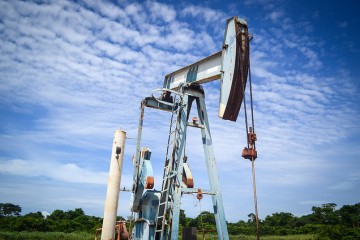
Angola’s Perfect Storm
In a new article for Foreign Affairs, I discuss the perils of Angola’s reliance on declining oil revenues. Here are the first few paragraphs. In early 2014, Angola, sub-Saharan Africa’s second-largest oil producer and third-largest economy, was flush with cash and confidence. The economy had expanded tenfold over the previous decade, and the government, which in 2002 won a resounding victory in the country’s long civil war, was unchallenged at home, a towering presence in regional politics, and a major investor abroad, including in Portugal, the former colonial power. Its national reconstruction agenda funneled tens of billions of dollars into infrastructure and transformed Luanda into a would-be African Dubai that attracted thousands of expatriates. The rule of Angolan President José Eduardo …

Time is running out for the Transatlantic Trade and Investment Partnership
In 2013, the European Union and the United States launched negotiations for a comprehensive trade agreement (the Transatlantic Trade and Investment Partnership, TTIP). TTIP’s objective is to facilitate market access for goods and services across the Atlantic by cutting tariffs and trade restrictions (like the Buy American Act), harmonizing regulatory standards, and setting common trade rules, including on custom policies and protected geographical indications.
The agreement is negotiated in a difficult situation. Europe’s weight in the global economy is declining, whereas the US has recovered from the crisis and is striking a parallel deal with the ASEAN countries in the Far East.
Europe’s economic prosperity depends on trade more than that any other region’s in the world. International trade (import and export) accounts for 87% of EU GDP (against 30% in the US, and 50% in China). But what TTIP is about is the future, not the present. This is the last opportunity for the EU and the US to set the production, environmental, investor and consumer standards for the global economy.
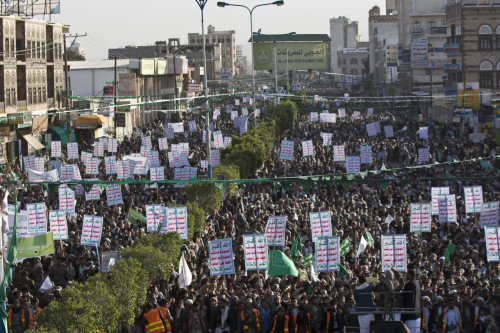
Transition and unease in the Arabian peninsula: a radio interview
Yemen continues to lurch from crisis to crisis. Last September, Houthi rebels (Zaydi Shi’ites from Yemen’s north) overran the capital Sana’a and have continued their push for geographical and political domination. After kidnapping the Yemeni President’s Chief of Staff on 19 January, in the following days they went on to besiege the Presidential Palace and demand changes to Yemen’s new draft constitution. Following failed attempts to implement a power-sharing agreement, on 22 January Yemen’s President, Prime Minister and Cabinet all resigned, stating that “we don’t want to be party to what is going on and what is going to happen”. That same day, Saudi Arabia’s King Abdullah died. While the Saudi transition appears smooth and promises continuity, where is the Arabian Peninsula heading?









